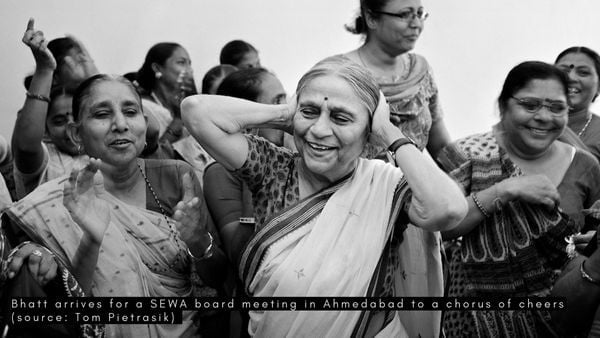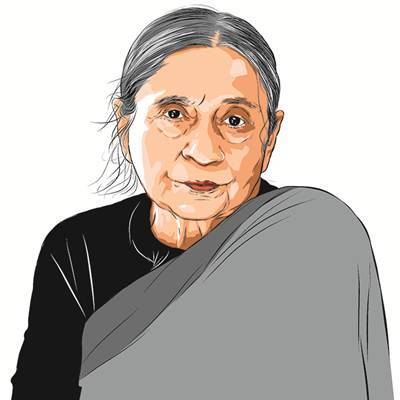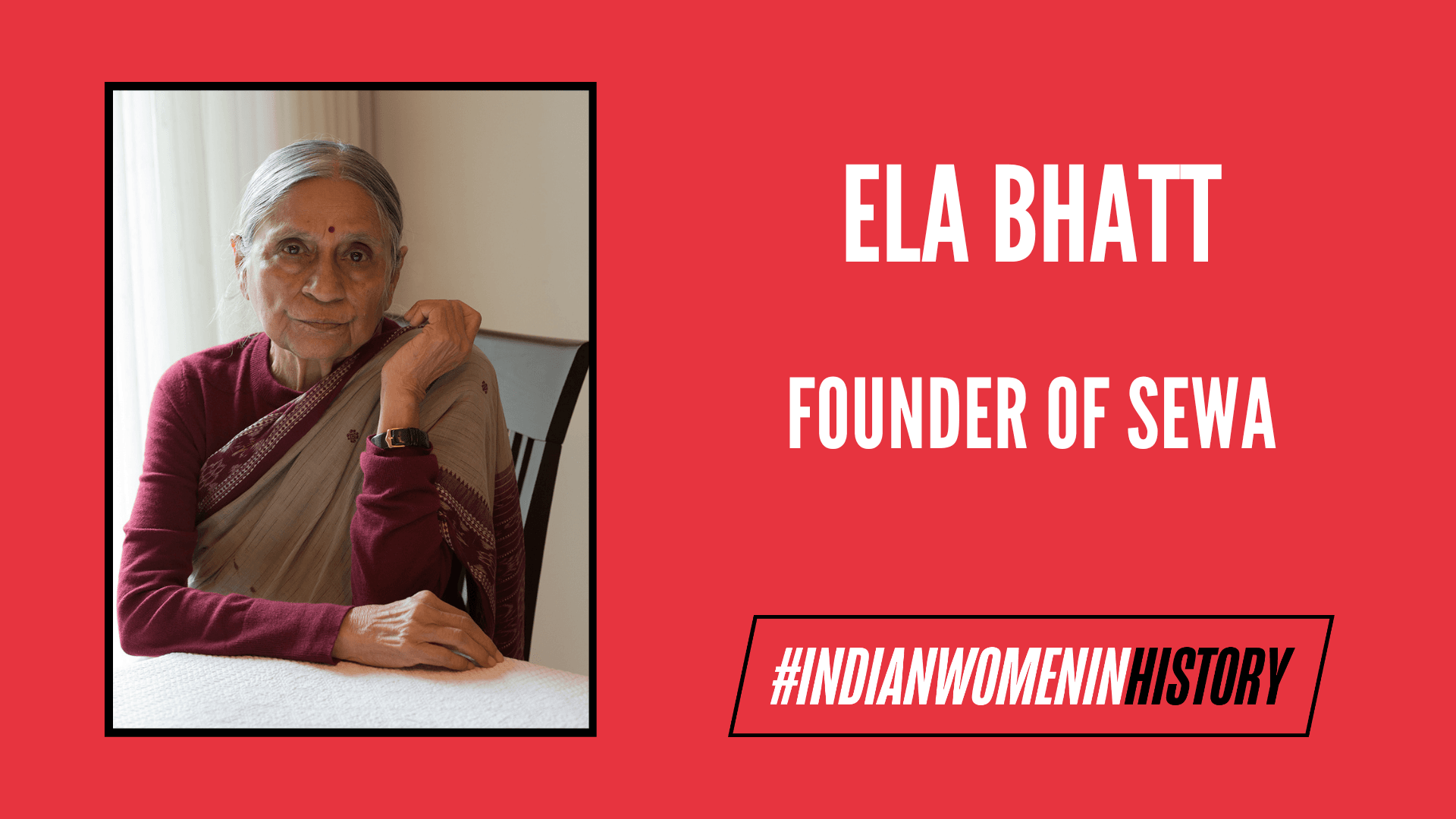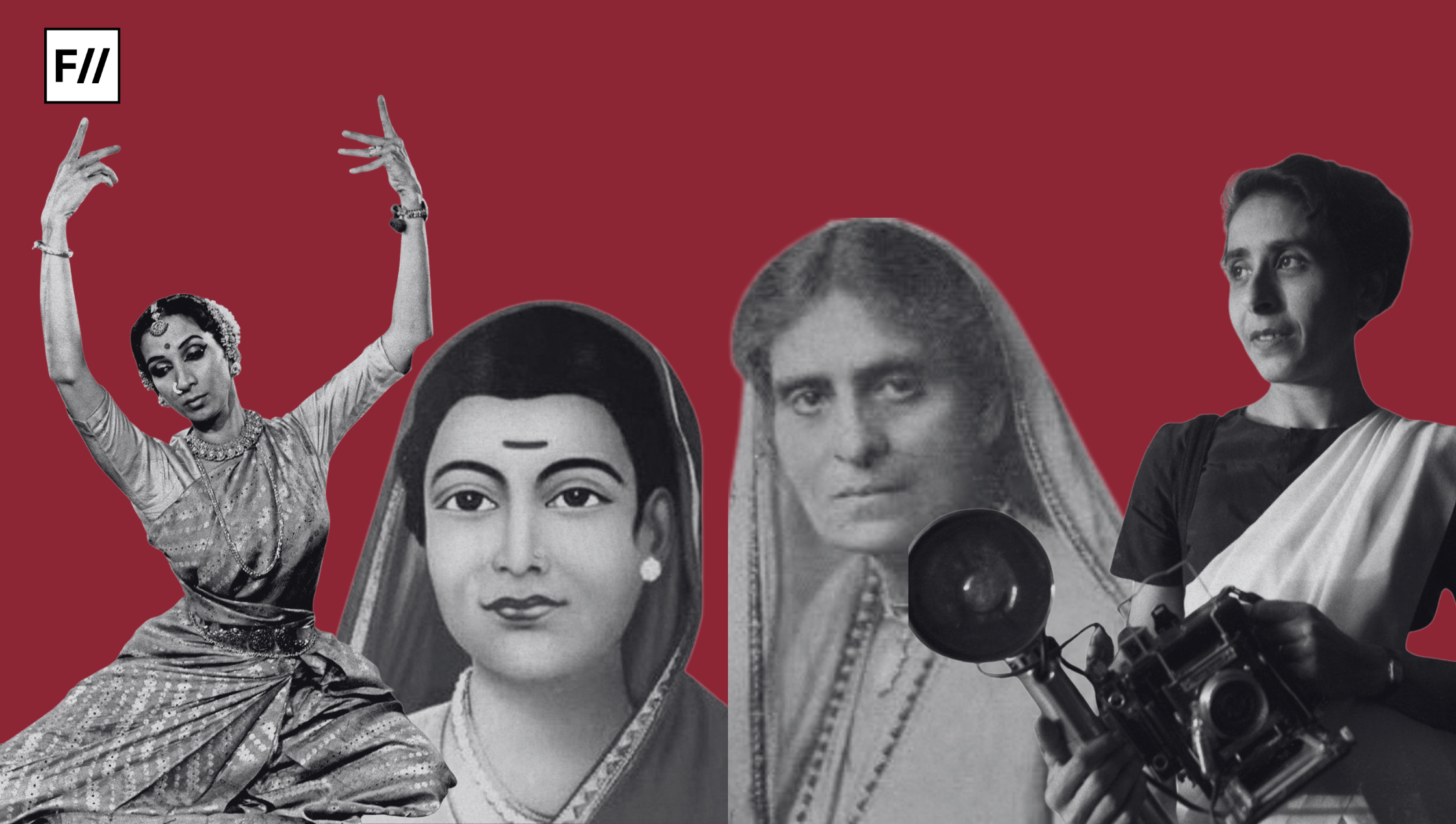The revolutionary activist, lawyer Ela Bhatt popularly known as Elaben, was a strong and vocal champion for voiceless and marginalised people all over the world. Lawyer in profession, she was a social activist drawing on a lifetime of work in her native India to support the empowerment of women at the grassroots level and in the trade union movement.
Bhatt was globally recognised as a woman leader who founded many institutions for self-employed women. The recipient of national and international awards, including the Padma Bhushan, the Ramon Magsaysay Award, the Indira Gandhi Peace Prize and many other accolades, was fighting for the self-employed people in the informal sector.
Ela Bhatt was born in the year 1933 in Ahmedabad. She was the pioneer in women’s empowerment and founder of the more than 1 million- strong self-employed women’s association trade union in India.
A glance into Elaben’s life
Born as the second of three daughters, Elaben completed her school life and Bachelor’s degree in Surat. Her father Sumantrai Bhatt was a lawyer and mother was a women activist which paved her way to become a lawyer and an activist. Following the graduation Ela joined Sir L.A Shah Law college in Ahmedabad and graduated with a Gold Medal for her work on Hindu Law.

Bhatt was granted a Doctorate degree in Humane Letters by Harvard University in June 2001. Also, she received a Doctor of Humane Letters, honoris causa from Georgetown University, an honorary doctorate from Universote libre de Bruxelles in Brussels, Belgium and honorary doctrates from Yale University and the Universoty of Natal.
After graduating from the Law school, Elaben joined the Textile Labour Association, a trade organisation of mill employees (or Majoor Mahajan). TLA was established by Anasuya Sarabhai and its constitution was drafted by Gandhiji. There, she learnt a lot about trade union and the starting of her scratch works for the betterment of women, to become a voice for the marginalised.
SEWA federation: Helping women support women’s cooperatives
She is the Founder of the Self-Employed Women’s Association, or SEWA. It began as a modest organisation in 1972 and it has grown into a national, if not global, movement of women who are employed at the bottom of the pyramid. She frequently recounted setting up a gathering with female cart pullers and sellers who declared, “We want a Majoor Mahajan of our own.”
The revolutionary movement made Elaben astounded when the union members even contributed 25 pence each for the betterment of their union. But just this was not enough according to Elaben, the self-employed women were not protected by any laws or authorities like the police, and the municipality had an exploitative mentality.
Every day of her life was to serve for the betterment of the marginalised community, the profound Gandhian was a Chancellor of Mahatma Gandhi-founded Gujarat Vidyapeeth after she resigned as the Chairperson of Sabarmati Ashram.
Ela Bhatt assumed leadership of the women’s wing in 1968. By the 1970s, Bhatt had realised that these women working there had to perform unpaid domestic duties, while working hard for meagre pay and with no security at all. Also, they were subjected to harassment from the employers, taking authority over the working conditions since the women were exempt from the local labour laws in contrast to the male employees.

Talking about the difficulties faced with the registration of the trade union, she said that she can answer without hesitation that some of the biggest battles have been over contesting preset ideas and attitudes of officials, bureaucrats, experts, and academics. Definitions are part of that battle. The Registrar of Trade Unions never considered them as ‘workers’, hence the registration as a ‘trade union’ was difficult. The hard-working chindi workers, embroiderers, cart pullers, rag pickers, midwives, and forest-produce gatherers can contribute to the nation’s gross domestic product, but heaven forbid that they be acknowledged as workers.
She also mentions that without an employer, you cannot be classified as a worker, and since you are not a worker, you cannot form a trade union. Their struggle to be recognized as a national trade union continued until they succeeded in the year 2007.
The rise of a leader
In 1956, Ela Bhatt married Ramesh Bhatt who was a student leader, who also joined Gujarat Vidhyapeeth in Ahmedabad. As one of the early leaders of the microfinance movement, her work primarily involved making women financially independent. She was a trustee of the Rockfeller Foundation for more than ten years. Bhatt was globally recognised as a woman leader who founded many institutions for self-employed women. The recipient of national and international awards, including the Padma Bhushan, the Ramon Magsaysay Award, the Indira Gandhi Peace Prize and many other accolades, was fighting for the self-employed people in the informal sector.
Every day of her life was to serve for the betterment of the marginalised community, the profound Gandhian was a Chancellor of Mahatma Gandhi-founded Gujarat Vidyapeeth after she resigned as the Chairperson of Sabarmati Ashram.
It was in 2007, when she became a part of the world leaders group called the Elders which was founded by Nelson Mandela for promoting peace and worked for human rights across the world. Bhatt was also a Member of the Rajya Sabha in the 1980s along with her services in many international organisations like Women’s World Banking, which she co-founded and served as their chairperson. She addressed the United Nations General Assembly as well.

Her life in a nutshell was a legendary journey of a fight towards equality, humanity and freedom.
In City of Marginals, Ela Bhatt said, “My plea to all those in the banking sector is for a gentler economy, a caring economy. I hope you will agree with me. To repeat, we must build economies that encourage self-reliance and self-development of sustainable communities. We must help conserve, preserve, and restore a balance of formal and informal systems. We must create power and resources that are decentralized and inclusive. We must recycle our flow of food, water, energy, natural wastes. We must maintain our structures and systems as autonomous and interdependent so that they enrich each other and everybody. Most importantly, we must create and recreate productive work that enhances human dignity.”
Elaben’s ability to alter millions of lives can be considered as her greatest accomplishment, by empowering low-income working women, and attracting a large number of educated and accomplished women who joined her in the movement and advanced it.
While SEWA marked its 50th anniversary and is still heading towards progress and betterment, her signatures from the grassroots of the mission sustains the legacy through the lives she has touched.




